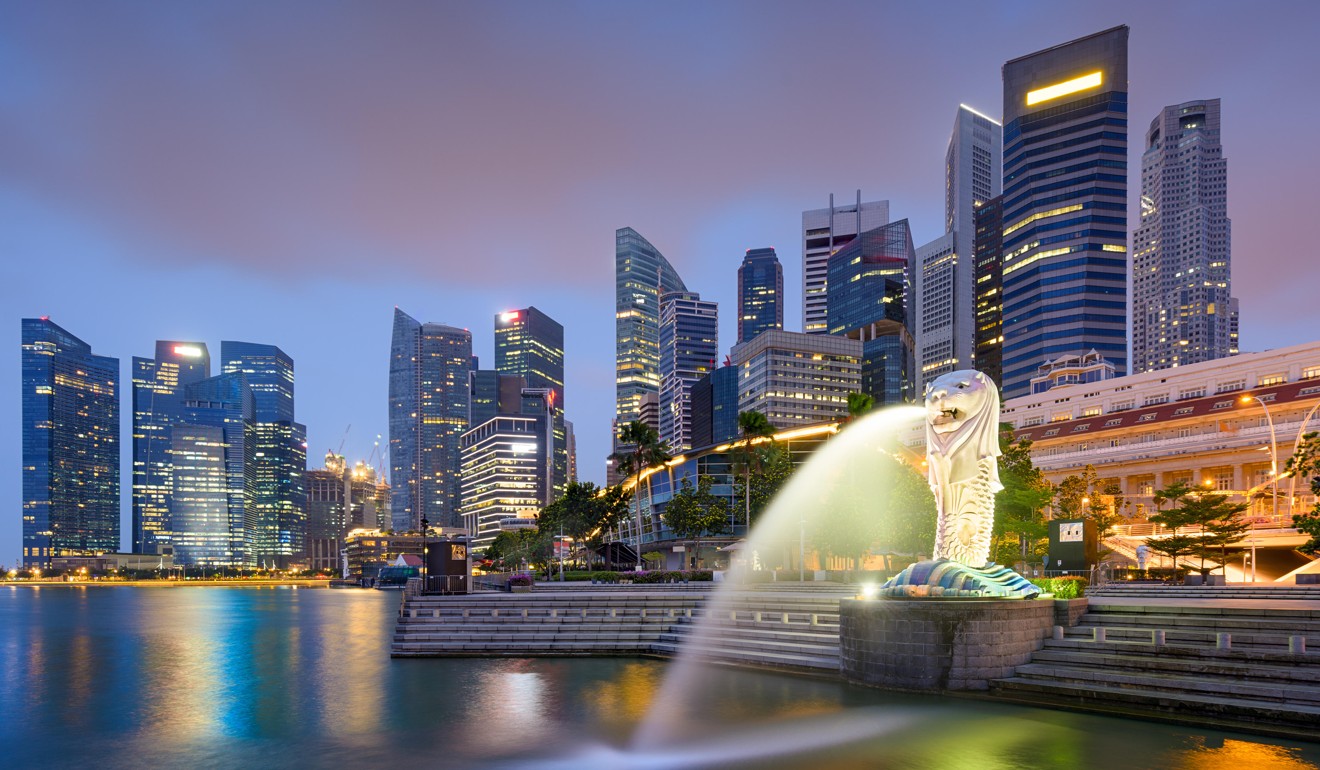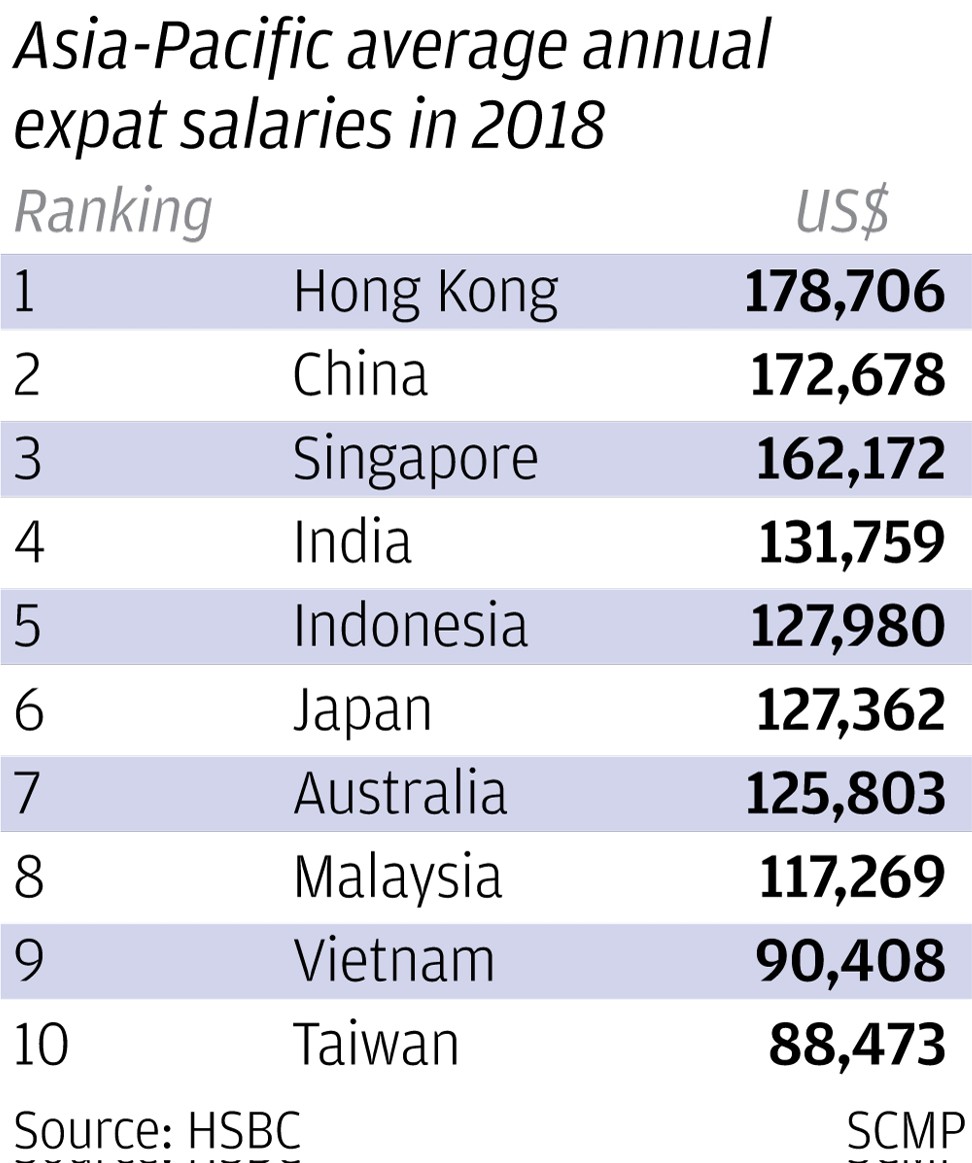
Expats earn more in Hong Kong, but prefer to live in Singapore, according to HSBC survey
Hong Kong expatriates earn US$72,000 a year more than the average expatriate globally and 10 per cent more than those in Singapore, but the Lion City tops living condition rankings for fourth year
Expatriates living in Hong Kong earn 10 per cent more than those in Singapore, but the Lion City has once again outranked it as a better place for them to live, according to HSBC’s Expat Explorer Survey.
According to the survey, now in its 11th year, expatriates in Hong Kong also make the most amount of money in Asia-Pacific and the third worldwide. They earn an average salary of US$178,706 a year, US$72,000 more than the average expatriate globally. This only behind Switzerland at US$202,865 and the US at HK$185,119. Expatriates in mainland China, who ranked second in Asia-Pacific, earn an average of US$172,678 while in Singapore, which ranked third, they earn US$162,172.
The survey polled 22,318 expatriates in 163 markets worldwide in March and April this year. And while Hong Kong has featured in the top three for expatriate earnings in Asia-Pacific for the past three years, it has lost out to Singapore, which is considered the best place to live by expatriates. This is the fourth year in a row that Singapore has ranked top in terms of living conditions for expatriates.
The high salaries in Hong Kong come at a price, with 50 per cent of expatriates saying they worked longer hours after moving here. About 28 per cent of expatriates earned 50 per cent more here than at home, ahead of Singapore where expatriates earned on average 27 per cent more than at home.
Every six in 10 expatriates in Hong Kong said they had more disposable income than they did before moving here. This was because they paid lower taxes here, while a quarter of the respondents said their employer covered some of their expenses, such as accommodation, schooling and cars.
About 72 per cent of expatriates in Hong Kong said the city was a good place for expatriates who wanted to progress in their careers, the highest proportion across Asia-Pacific.
“With increased economic prospects across Asia-Pacific, more markets in the region are providing attractive opportunities and diverse experiences for expats. However, expat destinations like Hong Kong, Singapore and mainland China stand out as magnets for global talent as they strengthen their position as leading international commercial and financial centres with a promise of not only higher earnings, but long-term career growth,” said Mark Surgenor, head of wealth, Asia-Pacific at HSBC.
The higher incomes also mean these expatriates spent more, the survey found. “Expats in Hong Kong are taking more holidays (53 per cent), spending more on their children’s education (30 per cent) and buying more luxury items (22 per cent). But many are also putting their money to more long-term uses in savings and investments,” he added.
Soaring rents make Hong Kong the most expensive city for expats, according to Mercer
Since moving to Hong Kong, 39 per cent of expatriates said they had been able to save or invest to buy property somewhere in the world; 32 per cent had been able to put away long-term savings or investments; and 26 per cent said they had been able to save or invest for their children’s education.

About a third of the expatriates surveyed in Hong Kong were from the United Kingdom, 15 per cent from mainland China, 12 per cent from the US, 9 per cent from Australia, and the rest from Canada, Germany and France.
More expatriates come to Hong Kong to work, with only 2 per cent moving here for retirement. In contrast, 22 per cent of expatriates moving to Malaysia went there for retirement.
About a quarter of expatriates in Hong Kong worked in financial services, 15 per cent in education and 8 per cent in accounting or consulting.
About 62 per cent of expatriates in Hong Kong have been here for over five years and 41 per cent for over 10 years. About 60 per cent were male and 40 per cent female.


